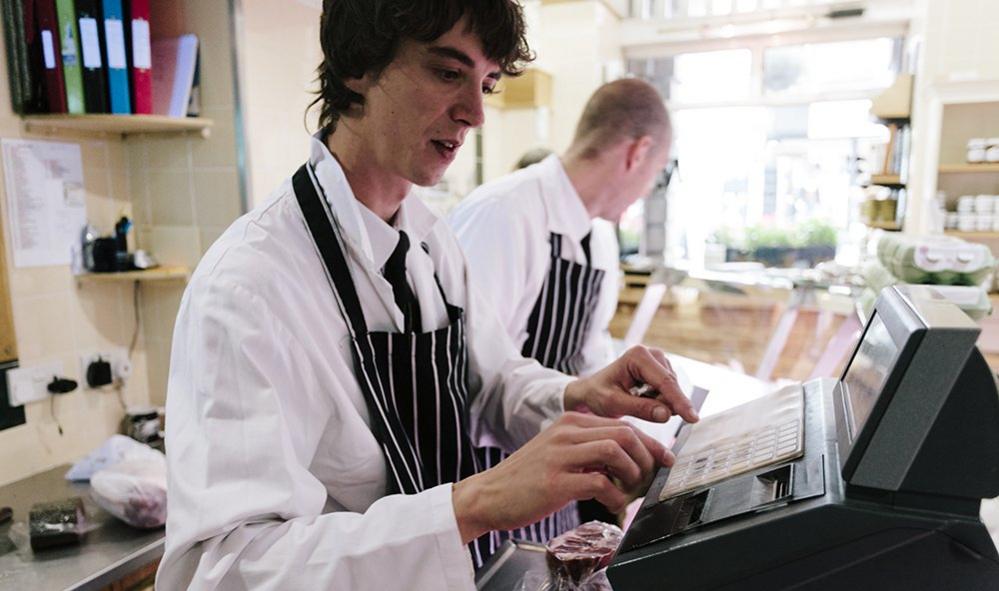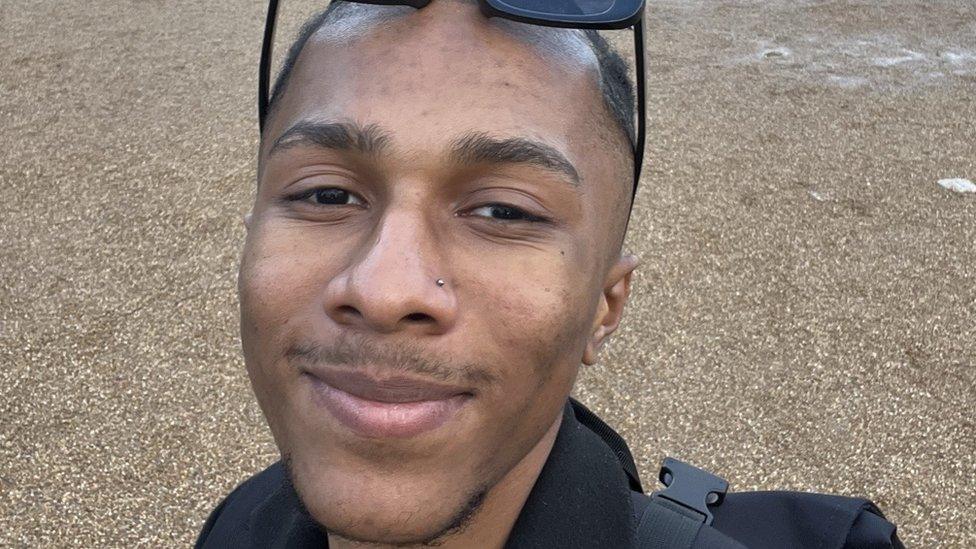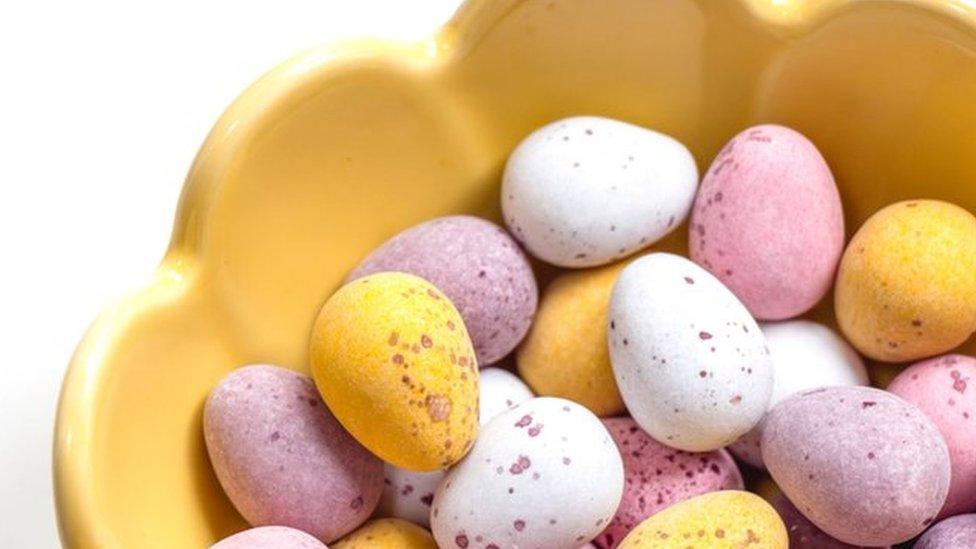UK inflation falls as some food prices drop
- Published
- comments

Inflation has fallen to its lowest level in two-and-a-half years, driven largely by slowing food price rises.
Prices rose by 3.2% in the year to March, down from 3.4% the month before, according to official figures., external
The cost of some items including meat, crumpets, chocolate biscuits, furniture and household items fell. However, petrol and diesel prices rose.
Lower inflation does not mean prices overall are coming down, they are just rising less quickly.
While the overall rate of inflation has dropped, goods in the shops are still much more expensive than they were two years ago.
Meat prices, driven by a drop in the cost of pork, fell by 0.5% between February and March, compared with a rise of 1.4% a year ago. It means the meat price rises slowed further to 3.1% in the year to March, the lowest rate since November 2021.
Prices for furniture and household goods like cleaning products also fell by 0.9% in the year to March.
Soaring food and energy bills have been the main causes behind the UK's high inflation in recent years.

Inflation has been falling gradually since it peaked at 11.1% in late 2022, driven by the aftermath of Covid when demand for goods rose sharply after factories struggled to cope with the rise in demand.
Oil and gas were also in greater demand after the pandemic, and prices surged again when Russia invaded Ukraine, cutting global supplies. The conflict also reduced the amount of grain for sale, pushing up food prices.
It led to inflation for food and non-alcoholic drinks hitting almost 20% last year - the highest level seen since the 1970s.
Miles Johnson is a student in London, and has been shopping around more to make sure he is getting the best prices possible.
"I go to multiple places to get the best deal, sometimes I work from home not through choice - just because it's cheaper to eat at home and not pay for travel," he said.
He said he is certainly feeling the strain of high prices and doesn't feel like things are getting any more manageable.

Miles Johnson says his costs are becoming unmanageable
The rate of inflation in March was slightly higher than economists expected, but experts said that was unlikely to change expectations that the Bank of England will cut interest rates this year, potentially as early as June.
Yael Selfin, chief economist at KPMG UK, said it expected inflation to return to its 2% target later this spring, "which raises the prospect of interest rate cuts from June onwards".
Chancellor Jeremy Hunt described the latest official figures as "welcome news".
He said that due to lower inflation and the government's recent cut in National Insurance for the employed and self-employed, which came into force on 6 April, "people should start to feel the difference as well as see it in their pay cheques".
Speaking from the United States, where he is meeting key business leaders, Mr Hunt told the BBC: "It is very tough and we have been through a very tough period." But he argued the UK was emerging from a difficult time and that the "fundamentals of the UK economy are actually very strong".
However, Rachel Reeves, Labour's shadow chancellor said working people would still feel worse off.
"Prices are still high in the shops, monthly mortgage bills are going up and inflation is still higher than the Bank of England's target," she said.
Liberal Democrat Treasury spokesperson Sarah Olney said: "Nobody will notice this in their pockets. By patting themselves on the back for this record, Rishi Sunak and Jeremy Hunt have proved just how out of touch they are."
The Bank makes its next interest rate decision on 9 May. The UK's central bank has been increasing interest rates in a bid to slow price rises and they are currently at their highest level for 16 years.
The theory is that if you make borrowing more expensive, people have less money to spend, or may choose to save more as saving rates go up. This in turn reduces demand for goods and helps cool inflation.
On Tuesday, Bank governor Andrew Bailey said the question was how much more evidence was necessary before starting to cut interest rates in the coming months.
Consumer prices in the US rose faster than expected last month, with the UK inflation rate now sitting below that of the United States for the first time since early 2022.
Some experts have said there is the prospect of the Bank of England starting to cut interest rates before their counterparts in the US as a result.
Both central banks, as well as those in Europe, have increased rates across the last few years as inflation soared, but as various economies with strengths in different sectors see inflation fall at different rates, their paths on interest rates may diverge.
Ian Stewart, chief economist at Deloitte, said that although inflation may be in "retreat" in the UK, "the Bank of England cannot yet be sure that it is beaten".
With people's wage growth remaining above forecasts, "and the economy reviving, the Bank will be in no hurry to cut interest rates", he said.
On Wednesday, separate ONS figures showed that private rents had increased by 9.2% in the 12 months to March, now averaging £1,285 in England.
Next month's overall inflation figure looking back at April is expected to show a bigger drop as the lower energy price cap is taken into account, even as households' direct debits remain higher.

How can I save money on my food shop?
Look at your cupboards so you know what you have already
Head to the reduced section first to see if it has anything you need
Buy things close to their best before date which will be cheaper and use your freezer
Read more tips here

- Published2 April 2024

